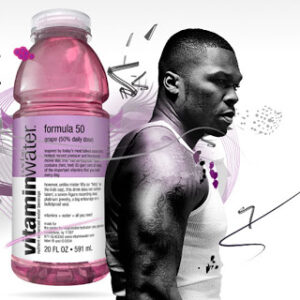How Celebrity Endorsements Benefit Brands

The Power of a Celebrity Endorsement
A recent post on the INSIDE BlackBerry blog labels its smartphones as the favored choice of heads of state, including President Obama, who praised the technology for its, “strong security, productivity, and connectivity.” While celebrity endorsements are pervasive in the branding and advertising world, claiming to be the favored smartphone for powerful politicians is an unconventional approach. Needless to say, this post got us thinking―what type of celebrity endorsements benefits a brand the most?
 The single best use of a celebrity endorsement is a situation where a well-known individual becomes a brand ambassador, someone who becomes the face and representation of a brand. Many brands have found unprecedented success by teaming up with the right celebrity―think Michael Jordan for Nike or 50 Cent for Vitamin Water manufacturer Glaceau. In successful cases like these, the celebrity moves past merely endorsing the brand and becomes a critical part of the creative direction, lending crucial authenticity―and even street cred―to the partnership.
The single best use of a celebrity endorsement is a situation where a well-known individual becomes a brand ambassador, someone who becomes the face and representation of a brand. Many brands have found unprecedented success by teaming up with the right celebrity―think Michael Jordan for Nike or 50 Cent for Vitamin Water manufacturer Glaceau. In successful cases like these, the celebrity moves past merely endorsing the brand and becomes a critical part of the creative direction, lending crucial authenticity―and even street cred―to the partnership.
However, it appears that just as often a brand’s own celebrity ambassador can be detrimental when they appear or act in ways that are inconsistent with the brand’s values. Numerous badly behaved brand ambassador scandals have shown up across social media in the past few years. Many of these scandals featured ambassadors who were revealed as “fakes” when they accidentally supported a competitor brand or weren’t sufficiently knowledgeable about the brand they’d endorsed. Other missteps include negative press about a celebrity brand ambassador that then affects overall brand perception. Clearly, having your brand endorsed by individuals who wield notable social influence can be risky business. Not to mention, what if a less-than-appealing celebrity becomes an accidental ambassador for a brand? Abercrombie and Fitch faced this dilemma a few years ago when it felt obliged to pay members of MTV’s “Jersey Shore” to stop wearing its clothes on air.
Incidents like these have left some brand experts questioning whether celebrity endorsements are worth the investment or gamble. Poor  performance of certain celebrity-stamped products, and younger consumers’ mounting ambivalence towards famous faces on products, has deepened this sense of skepticism. A few brands have even adopted almost “anti-celebrity” endorsements, such as Virgin Mobile partnering with the lesser-known Pitt brother (Doug not Brad) or Miller Highlife’s “I am Rich” campaign―perhaps in response to this trend of brands moving away from inauthentic celebrity stamps.
performance of certain celebrity-stamped products, and younger consumers’ mounting ambivalence towards famous faces on products, has deepened this sense of skepticism. A few brands have even adopted almost “anti-celebrity” endorsements, such as Virgin Mobile partnering with the lesser-known Pitt brother (Doug not Brad) or Miller Highlife’s “I am Rich” campaign―perhaps in response to this trend of brands moving away from inauthentic celebrity stamps.
So what does it say about BlackBerry, that it is proudly displaying its politician-celebrity endorsement as a major selling point for its brand? Perhaps that the company is backing away from featuring disconnected celebrity faces, and are instead embracing ambassadors with a more authentic perception―personalities who have a more defined stake and a clear passion for its products. Instead of using an inauthentic celebrity connection, the company has allowed the endorsement to follow genuine adoption, usage, and loyalty to the brand. This could also mean that BlackBerry has indirectly targeted a new generation of smartphone users, ones who value security among their top priorities or drivers of choice.
One thing does seem certain: if you are seeking out a celebrity endorsement, make sure that the partnership is believable and based upon a mutual respect and passion for the values, experiences, products, and services in which your brand believes.
Sawyer Schweitzer is a consultant on Monigle’s Strategy Team.



